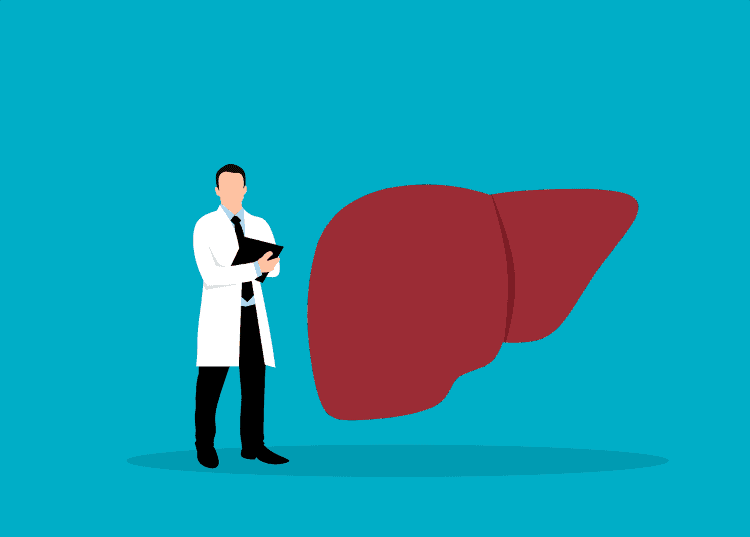Consuming alcohol over the recommended amount of units may lead to liver disease. Excessive alcohol intake over a prolonged period of time leads to an even higher risk of liver diseases such as fatty liver, hepatitis and cirrhosis. This, in turn, can lead to liver failure and if not treated immediately may result in death.

The liver is a vital organ, without which the body cannot survive for longer than 24 hours. The liver is located under the ribs on the right-hand side. It is one of the largest and heaviest organs in the body. The main functions of the liver are to make bile, remove toxins from the body, to build proteins and to process nutrients from food. The liver also breaks down alcohol, allowing the removal of it from the body. However, the liver can only break down a small amount of alcohol. If there is excessive alcohol consumption over a prolonged period of time, binge drinking or drinking over the recommended alcohol units put the liver under stress and your liver can get damaged. (www.liverfoundation.org).
Symptoms
As noted above, the three main different types of alcohol-related liver disease are fatty liver disease, alcoholic hepatitis and alcoholic cirrhosis. Fatty liver disease is the built up of extra fat in the liver cells. This is caused by the liver not being able to break down an excessive amount of alcohol. There are almost no symptoms for spotting fatty liver disease. The only symptoms known are fatigue, weight loss and general weakness. Most heavy drinkers will get fatty liver disease but if the person stops drinking it can be reversed. However, if there is no reduction in alcohol intake, fatty liver disease may lead to alcoholic hepatitis. (www.liverfoundation.org).
Alcohol Hepatitis
Alcoholic hepatitis occurs when there is liver damage due to swelling. The symptoms of alcoholic hepatitis are fever, jaundice, nausea, loss of appetite and weight loss. Alcoholic hepatitis can occur either slowly or suddenly. The sudden occurrence of alcoholic hepatitis can lead to liver failure and death. According to the liver foundation up to 35 percent of heavy drinkers develop alcoholic hepatitis.
Cirrhosis
“Cirrhosis occurs when the fibrosis reaches the stage when the normally soft liver is divided into thousands of pea-sized pockets of liver tissue, wrapped in fibrosis’’, (www.drinkaware.co.uk). Once cirrhosis develops, the prognosis partly depends on whether or not the person continues drinking. According to Drink Aware (www.drinkaware.co.uk), research statistics show that persons with compensated cirrhosis – meaning they have no symptoms – and who then stop drinking, have an 80 percent chance of being alive after 10 years.
Drinking Too Much
If you drink within the recommended alcohol limits you are not likely to have alcohol-related liver disease. If you are drinking too much you are at risk of developing alcoholic hepatitis. This may lead to cirrhosis and slow painful death. There is help for you out there, such as, addiction treatment centres for those that cannot stop drinking on thier own. You can attend local AA meetings, CBT counselling and follow the 12-step program of recovery.
